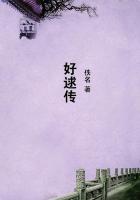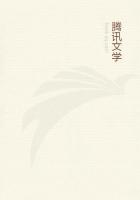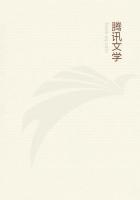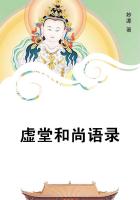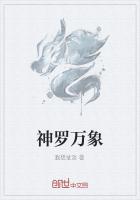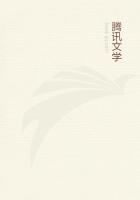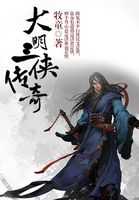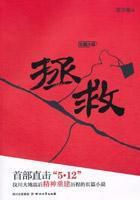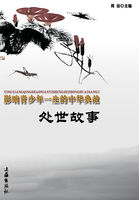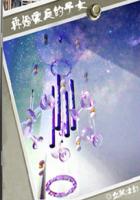He was still fond of machines going upon wheels. He had enjoyed the sight of the big watch going upon brass wheels when he was a boy; but, now that he was a workman in wood, he proposed to make an eight-day clock, with wheels of this material. He made the clock in 1713, when he was twenty years old,so that he must have made diligent use of his opportunities. He had of course difficulties to encounter, and nothing can be accomplished without them; for it is difficulties that train the habits of application and perseverance. But he succeeded in making an effective clock, which counted the time with regularity. This clock is still in existence. It is to be seen at the Museum of Patents, South Kensington; and when we visited it a few months ago it was going, and still marking the moments as they passed.
It is contained in a case about six feet high, with a glass front, showing a pendulum and two weights. Over the clock is the following inscription:
"This clock was made at Barrow, Lincolnshire, in the year 1715, by John Harrison, celebrated as the inventor of a nautical timepiece, or chronometer, which gained the reward of 20,000L., offered by the Board of Longitude, A.D. 1767.
"This clock strikes the hour, indicates the day of the month, and with one exception (the escapement) the wheels are entirely made of wood."This, however, was only a beginning. Harrison proceeded to make better clocks; and then he found it necessary to introduce metal, which was more lasting. He made pivots of brass, which moved more conveniently in sockets of wood with the use of oil. He also caused the teeth of his wheels to run against cylindrical rollers of wood, fixed by brass pins, at a proper distance from the axis of the pinions; and thus to a considerable extent removed the inconveniences of friction.
In the meantime Harrison eagerly improved every incident from which he might derive further information. There was a clergyman who came every Sunday to the village to officiate in the neighbourhood; and having heard of the sedulous application of the young carpenter, he lent him a manuscript copy of Professor Saunderson's discourses. That blind professor had prepared several lectures on natural philosophy for the use of his students, though they were not intended for publication. Young Harrison now proceeded to copy them out, together with the diagrams. Sometimes, indeed, he spent the greater part of the night in writing or drawing.
As part of his business, he undertook to survey land, and to repair clocks and watches, besides carrying on his trade of a carpenter. He soon obtained a considerable knowledge of what had been done in clocks and watches, and was able to do not only what the best professional workers had done, but to strike out entirely new lights in the clock and watch-making business. He found out a method of diminishing friction by adding a joint to the pallets of the pendulum, whereby they were made to work in the nature of rollers of a large radius, without any sliding, as usual, upon the teeth of the wheel. He constructed a clock on the recoiling principle, which went perfectly, and never lost a minute within fourteen years. Sir Edmund Denison Beckett says that he invented this method in order to save himself the trouble of going so frequently to oil the escapement of a turret clock, of which he had charge; though there were other influences at work besides this.
But his most important invention, at this early period of his life, was his compensation pendulum. Every one knows that metals expand with heat and contract by cold. The pendulum of the clock therefore expanded in summer and contracted in winter, thereby interfering with the regular going of the clock. Huygens had by his cylindrical checks removed the great irregularity arising from the unequal lengths of the oscillations; but the pendulum was affected by the tossing of a ship at sea, and was also subject to a variation in weight, depending on the parallel of latitude. Graham, the well-known clock-maker, invented the mercurial compensation pendulum, consisting of a glass or iron jar filled with quicksilver and fixed to the end of the pendulum rod. When the rod was lengthened by heat, the quicksilver and the jar which contained it were simultaneously expanded and elevated, and the centre of oscillation was thus continued at the same distance from the point of suspension.
But the difficulty, to a certain extent, remained unconquered until Harrison took the matter in hand. He observed that all rods of metal do not alter their lengths equally by heat, or, on the contrary, become shorter by cold, but some more sensibly than others. After innumerable experiments Harrison at length composed a frame somewhat resembling a gridiron, in which the alternate bars were of steel and of brass, and so arranged that those which expanded the most were counteracted by those which expanded the least. By this means the pendulum contained the power of equalising its own action, and the centre of oscillation continued at the same absolute distance from the point of suspension through all the variations of heat and cold during the year.the ship, when fairly at sea, out of sight of land, and battling with the winds and tides, was in a measure lost. No method existed for accurately ascertaining the longitude. The ship might be out of its course for one or two hundred miles, for anything that the navigator knew; and only the wreck of his ship on some unknown coast told of the mistake that he had made in his reckoning.
It may here be mentioned that it was comparatively easy to determine the latitude of a ship at sea every day when the sun was visible. The latitude--that is, the distance of any spot from the equator and the pole--might be found by a simple observation with the sextant. The altitude of the sun at noon is found, and by a short calculation the position of the ship can be ascertained.

